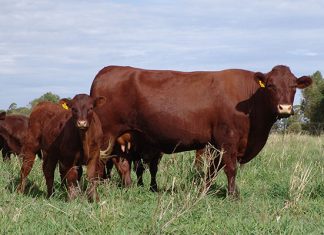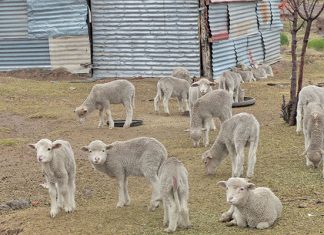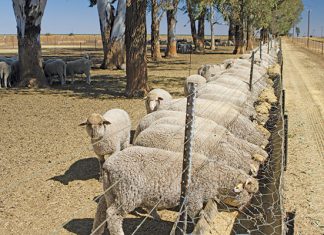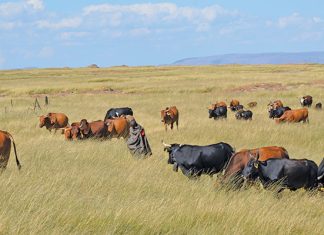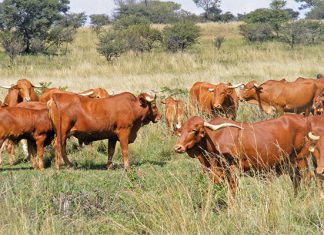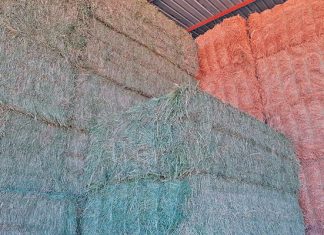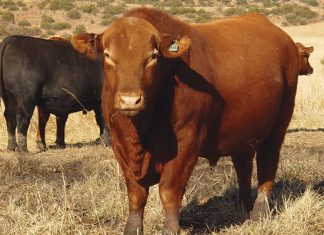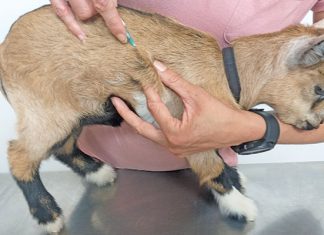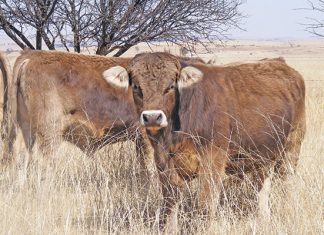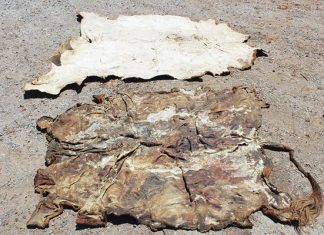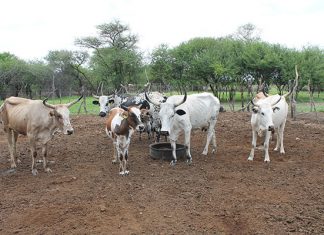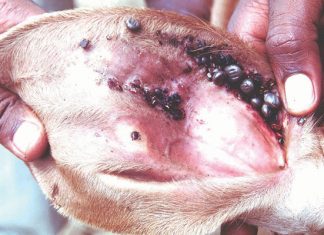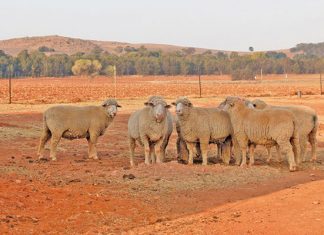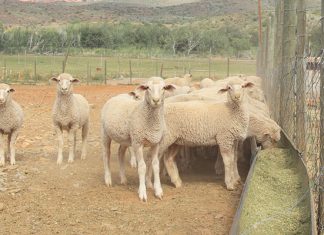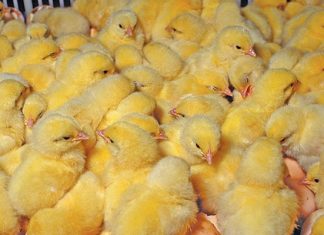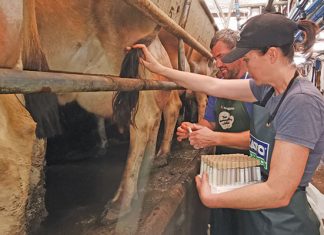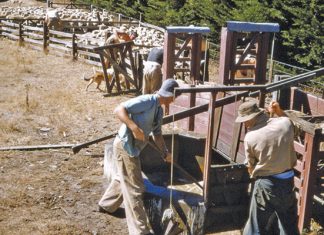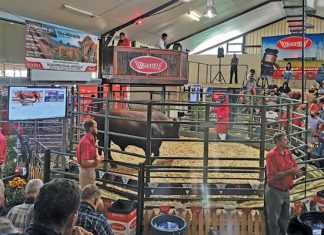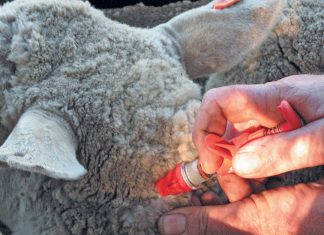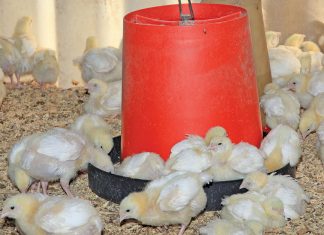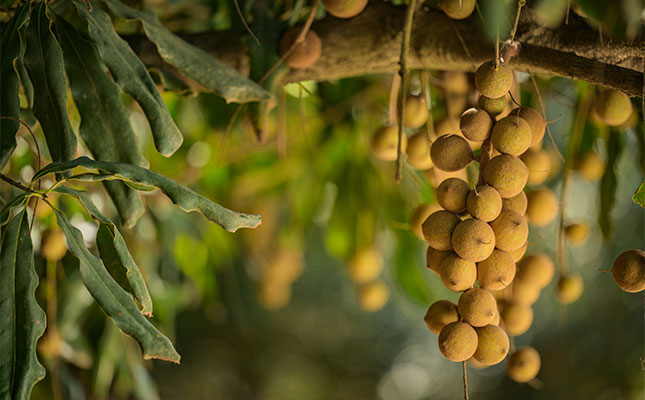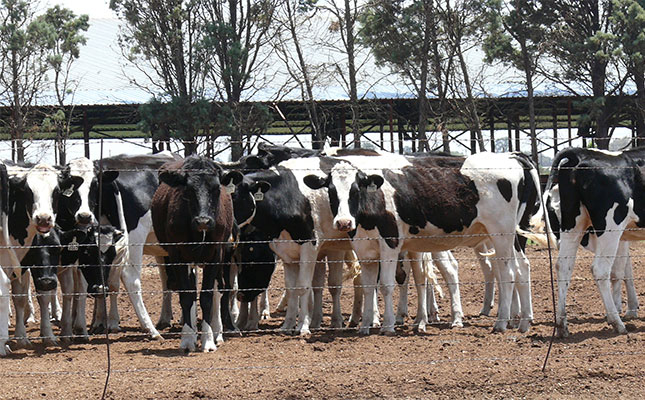Protect your animals against foot-and-mouth disease
Communal farming groups need to institute quarantine and other biosecurity protocols, especially when it comes to new livestock entering their areas, says Shane Brody.
A basic checklist to keep sheep healthy and productive
The price of replacement livestock has increased dramatically in recent years, so it’s important to obtain the highest-possible lamb weaning rate. Shane Brody explains how to achieve this.
The proper fencing to keep sheep and goats safe
Sheep and goats present a unique challenge to many farmers. Like the rest of your animals, they need to be kept safe and penned in on your property, but their small size and mischievous nature make them difficult to keep in one place, says Dain Rakestraw, director of marketing and client services at Red Brand.
How clever kraaling can restore bare patches
A veld management strategy, based on an old animal husbandry practice, can benefit both communal farmers and holistic resource managers.
Using DNA sampling to deter stock thieves
South Africa’s livestock farmers need every bit of help they can get to counter stock theft, which has reached unprecedented heights. One weapon in the fight is genetic profiling. Susan Marais explores how this technology, which establishes livestock lineage, can help protect a farmer’s assets and bring thieves to book.
Growing your own livestock feed
With a little planning and a lot of care, you can cultivate your own grazing pastures that will feed your livestock for a number of years. In this way, you’ll cut your costs and boost your profits, says Shane Brody.
Know your cattle: Angus
The Angus breed was first bred in Scotland in the 1700s. the high quality of its beef was important right from the start. the first importation of angus into South Africa was in 1895, when 10 cattle arrived on the farm of J Newburg in the Free State.
Animal health: putting together a first-aid kit for livestock
Any animal can suffer a sudden traumatic injury or other medical emergency. In this first part of a four-part series, Prof Cheryl McCrindle, a practising veterinarian and professor at the University of Pretoria, details how to treat cattle, sheep and goats in emergencies.
Assessing veld condition
Taking a good look at every camp on your farm will reveal if your veld management system is on the right track, writes Roelof Bezuidenhout.
How to earn more from hides and skins
When an animal is slaughtered on the farm, the skin should be salted immediately. Many farmers don’t bother to do this, thinking the cost of the salt is more than what they can get for the skin. This means the loss of potential income when prices are right, says Roelof Bezuidenhout.
Controlling sexually transmitted diseases in cattle
Wandering cattle from unknown places and of unknown health status can wreak havoc in communal herds if animals from the two groups mate with each other, says Shane Brody.
How ticks can harm animals
Ticks are external parasites that live on the skin or the fleece of livestock. It’s important to know about their effects on your animals.
Sheep selection: the basics
Before selecting sheep, decide on your breeding goals and which type of sheep will adapt best to your conditions and provide maximum income.
A herd health and production management plan
Dr Danie Odendaal, director of the Veterinarian Network, spoke to Glenneis Kriel about what to consider when drawing up a herd health and production management plan for sheep and cattle. His advice can be applied to most other livestock.
Small-scale egg production basics
This article focuses on how to build, manage and maintain an affordable, small-scale egg production unit.
Managing mastitis in dairy cows
Mastitis can cause devastating economic losses for a dairy farmer. Yet a long-term vaccination programme can be an effective weapon in the fight to control it, writes Robyn Joubert. She spoke to Prof Inge-Marié Petzer, an udder health specialist at Onderstepoort.
Tips for dipping sheep
Sheep need to be dipped to prevent the spread of lice, scab and other economically important ectoparasites.
Tips for getting the most out of livestock auctions
Livestock auctions offer a relatively safe way for farmers to trade their animals, with a fairly low barrier to entry. Cornel Landman and Anton Vos spoke to Glenneis Kriel about factors that producers have to consider when participating in these events, and the administrative processes that need to be adhered to.
Why vaccines are so important for your animals
Many medications are available for treating diseases and other problems, such as worms, in livestock. But by far the most important treatment you can give your animals is vaccinations against the diseases that occur in your area. Shane Brody explains why vaccines are different to other medicines, and why they are so effective.
Animal feed: tips for cutting costs and reducing wastage
Feed accounts for 65% to 75% of a poultry or pig farmer’s total input costs. Feed expert Dr Leon Ekermans spoke to Glenneis Kriel about strategies to reduce these costs and prevent wastage.
- ADVERTISEMENT -
- ADVERTISEMENT -
MUST READS
- ADVERTISEMENT -

